Mesotherapy in Tunis
Search and Compare the Best Clinics and Doctors at the Lowest Prices for Mesotherapy in Tunis
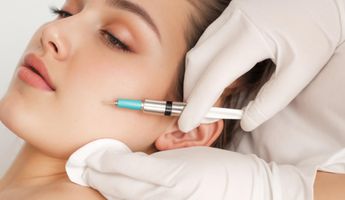
Find the best clinics for Mesotherapy in Tunis
With Medijump you can browse 1 facilities offering Mesotherapy procedures in Tunis. The cheapest price available is $81 in Monastir. And for the cheapest price globally, prices start from $20 in Ukraine.
Mesotherapy in Tunisia
Price: $ 81
Mesotherapy in Monastir
Price: $ 81
Ukraine offers the best prices Worldwide
Price: $ 20
Aesthetica Tour, located in Boulevard Mohamed Bouazizi, Tunis, Tunisia offers patients Mesotherapy procedures among its total of 42 available procedures, across 9 different specialties. Currently, there's no pricing information for Mesotherapy procedures at Aesthetica Tour, as all prices are available on request only, whilst the national average price is approximately €74. All procedures and treatments are undertaken by the lead specialist at the Hospital, and they are not accredited by any recognized accreditations institutes
Compare Before & After Photos of _procedure_photos.phpMesotherapy
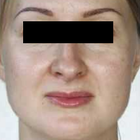
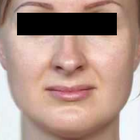
Front view
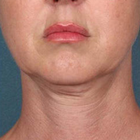
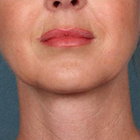
Front view
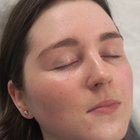
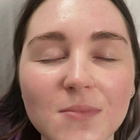
Front view
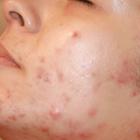
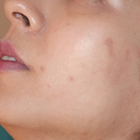
Half-side view
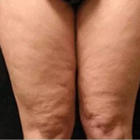
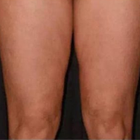
Front view
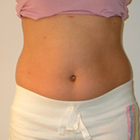
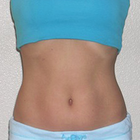
Front view
WHY US?
At Medijump, we're making medical easy. You can search, compare, discuss, and book your medical all in one place. We open the door to the best medical providers worldwide, saving you time and energy along the way, and it's all for FREE, no hidden fees, and no price markups guaranteed. So what are you waiting for?

Free

Best Price

Widest Selection

Risk-Free
What you need to know about Mesotherapy in Tunis
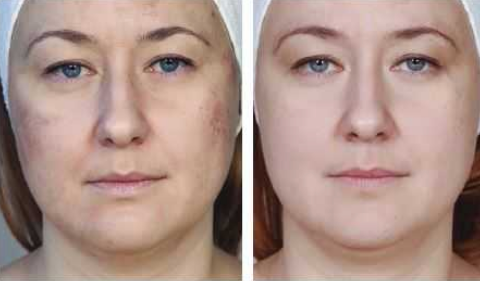
Mesotherapy is a nonsurgical technique that uses micro-injections of vitamins, hormones, enzymes, and plant extracts. Its goal is to rejuvenate and tighten the skin. It is also used to reduce cellulite, lighten pigmented skin, fade wrinkles and line, treat alopecia and encourage hair growth, recontour the body, as well as to remove fat in areas such as the thighs, stomach, buttocks, legs, hips, face, and arms.
Very fine needles are used to deliver a series of injections into the middle layer of the skin. These injections are believed to correct underlying issues, such as inflammation and poor circulation, which cause skin damage.
Before mesotherapy, you may have problems like stubborn fat in certain areas of the body, wrinkles and fine lines in the face, pigmented skin, etc. After the procedure, you’re dull and tired-looking skin will be improved, superficial wrinkles will fade, and excess fat will be reduced. If you undergo the procedure to treat alopecia, you can also expect the procedure to promote hair growth.
What does a Mesotherapy Procedure Involve?
While mesotherapy is nonsurgical and not painful, it can be slightly uncomfortable. Therefore, you may have anesthetic cream applied to your skin to numb the affected area.
Using a special short needle, you will get a series of injections. The injections can be carried out on the face, neck, scalp, chest, hands, and other areas of the body that may have problems you wish to address. There is not a standard formula for the substances injected. The practitioner may use a combination of different substances, including vitamins and minerals, enzymes (such as hyaluronidase and collagenase), herbal extracts, hormones (such as thyroxin and calcitonin), as well as prescription medicines (such as antibiotics and vasodilators). The substances used depends on what you want to treat. For instance, the treatment for cellulite and body fat reduction may use lecithin and isoproterenol.
Each injection can be given at different depths into your skin, ranging between 1 and 4 millimeters, depending on the condition you want to treat. The practitioner may flick their wrist at a rapid pace while injecting, or place the needle into your skin at an angle.
How Long Should I Stay in Tunis for a Mesotherapy Procedure?
Mesotherapy is an outpatient procedure, so you can leave the hospital on the same day. You should be able to leave Tunis right away, but it is recommended to wait at least a day before you travel home because you need to wait for the substances to settle down. However, since you may need a series of treatment to get the desired results, you should expect to return to the clinic or hospital between 3 to 15 times, with 7 to 14 days intervals. Therefore, the length of stay depends on how many sessions you will need until you achieve the result you wish for.
What's the Recovery Time for Mesotherapy Procedures in Tunis?
Mesotherapy has minimal downtime. You may experience a little bruising and swelling after the procedure, but they will subside within 24 hours. Some people are able to return to work and your normal activities on the same day, while others may need to take a day off due to pain and swelling.
What sort of Aftercare is Required for Mesotherapy Procedures in Tunis?
No special aftercare is needed, but the practitioner may give you instructions to follow, which may include what you should do to avoid complications and to reduce swelling and bruising. You can have maintenance treatments 1 – 2 times a year.
To maintain the results, particularly if you have mesotherapy to reduce signs of aging and eliminate excess fat, make sure you exercise regularly, follow a well-balanced diet plan, and limit your alcohol intake.
What's the Success Rate of Mesotherapy Procedures in Tunis?
While there is proof showing that there can be some improvement after mesotherapy, more studies and research are needed to verify the mechanism, safety, and effectiveness of the procedure. Therefore, you should always choose a licensed practitioner with proven track records and experience if you do want to try the procedure.
According to those who practice mesotherapy, the risks tend to be minimal if you go to an experienced and trained practitioner. The side effects and risks of mesotherapy may include pain, nausea, sensitivity, bumps, swelling, bruising, itching, dark patches of the skin, redness, rash, scars, and infection.
Are there Alternatives to Mesotherapy Procedures in Tunis?
The alternative to mesotherapy depends on the condition you want to treat, which may include:
- Injection lipolysis – mesotherapy and injection lipolysis are often thought to be the same procedure, but they are actually two different procedures. Injection lipolysis involves the injection of deoxycholate and phosphatidylcholine into the fat layer under the skin to break up fat.
- Liposuction – is one of the most popular cosmetic treatments to remove excess fat. It uses a suction technique to eliminate fat from specific areas of the body.
- Botox and dermal fillers – both Botox and dermal fillers are nonsurgical treatments to rejuvenate the skin. Botox works by blocking nerve contraction to relax wrinkles, while dermal fillers can improve skin contouring.
Whilst the information presented here has been accurately sourced and verified by a medical professional for its accuracy, it is still advised to consult with your doctor before pursuing a medical treatment at one of the listed medical providers
No Time?
Tell us what you're looking for and we'll reachout to the top clinics all at once
Enquire Now

Popular Procedures in Tunis
Prices Start From $85

Prices Start From $167

Prices Start From $120

Prices Start From $931

Prices Start From $76

Prices Start From $5

Prices Start From $236

Recommended Medical Centers in Tunis for Mesotherapy

- Interpreter services
- Translation service
- Religious facilities
- Medical records transfer
- Medical travel insurance
- Health insurance coordination
- TV in the room
- Safe in the room
- Phone in the room
- Private rooms for patients available

- Interpreter services
- Translation service
- Religious facilities
- Medical records transfer
- Medical travel insurance
- Health insurance coordination
- TV in the room
- Safe in the room
- Phone in the room
- Private rooms for patients available

- Interpreter services
- Translation service
- Religious facilities
- Medical records transfer
- Medical travel insurance
- Health insurance coordination
- TV in the room
- Safe in the room
- Phone in the room
- Private rooms for patients available

- Interpreter services
- Translation service
- Religious facilities
- Medical records transfer
- Medical travel insurance
- Health insurance coordination
- TV in the room
- Safe in the room
- Phone in the room
- Private rooms for patients available

- Interpreter services
- Translation service
- Religious facilities
- Medical records transfer
- Medical travel insurance
- Health insurance coordination
- TV in the room
- Safe in the room
- Phone in the room
- Private rooms for patients available
Mesotherapy in and around Tunis
About Tunis
Tunis is the capital and the largest city of Tunisia and is the center of government and administration as well as the center of commercial and cultural activities. It is divided into two parts, the old city known as Medina and the new city or Ville nouvelle. Even though it is located on the southern shores of the Mediterranean Sea, the city does not have many beaches. Still, it has managed to attract millions of tourists in 2018 thanks to its rich history displayed in numerous ancient buildings. These buildings have an enchanting blend of North African and French Architecture that will leave anyone in awe. Many tourists come to see the Roman ruins of Carthage or to stroll around and shop in the Medina.
Tunis is known to have a high standard of healthcare, which attracts an increasing number of medical tourists each year. Many of the medical tourists come from other African countries that have an inferior healthcare system. However, the city’s excellent reputation in cosmetic surgery and dental treatment appeal to many patients from Europe, the Middle East, and Asia. The private medical centers are armed with the best equipment and English speaking staff. The Tunisian Ministry of Health regulates cosmetic and plastic surgeons to ensure that there is a high standard. In addition to exceptional healthcare, Tunis also offer attractive prices for medical treatment and the cost of living.
Popular Areas in Tunis
Although it is the largest city in Tunisia, Tunis can feel like a compact city and can be explored on foot. The city has a number of famous attractions that are always packed with tourists.
- Carthage was founded in the 9th century BC and was once a powerful empire of the Mediterranean as well as home to a wonderful civilization before being destroyed by the Romans in the Third Punic War. It was then to become an important Christian center until the Islamic invaders destroyed it. Today, the ruins have become a UNESCO World Heritage Site that tourists can visit.
- The Medina in Tunis is one of the most remarkable medieval medinas in North Africa. There are over 700 monuments within the area, from mosques to madrassas to historical places. It is easy to get lost in the impressive maze-like alleyways, but tourists are encouraged to admire the Islamic architecture and art or learn more about the city’s history. Tourists can also shop in one of the souqs selling everything from shisha pipes to shoes or enjoy one of the cafes.
- Sidi Bou Saïd is a picturesque cliff-top village with cobbled streets, blue-and-white walls, and glimpses of pristine blue waters. It is probably one of the most beautiful places in Tunisia. The beautiful architecture is a blend of the Ottoman and the Andalusian. It is now a sleepy fishing village perfect for anyone who wants to get away from busy city life. The village has been a gateway for artists, bohemians, and pilgrimage for centuries.
- Bardo Museum is the second-largest museum in Africa and the main attraction of this museum is the ancient Roman mosaics recovered from Carthage. The museum also exhibits Greek statues, artifacts of the region’s Berber, and the accomplishments of the Islamic culture in the country. Other than the exhibitions, the building itself is decorated in impressive historic Islamic decorative arts.
Weather and Climate in Tunis
Tunis has a hot-summer Mediterranean climate meaning the city enjoys warm and sunny weather all year round. The summer can be hot and dry because rain is very rare and the summer usually lasts from June to August and the average temperature is around 25 °C but can get as high as 40 °C. July and August are the high tourist season, especially at the beach resorts. The city begins to get rain in autumn, often accompanied by a short thunderstorm. The winter is the wettest season of the year because it can rain every two or three days and the temperature can drop to 7 °C in the morning and 16 °C in the afternoon. The rainfall decreases in spring, and in March, the temperature ranges between 8 °C to 24 °C and the sunshine usually becomes dominant in May.
Getting Around in Tunis
Tunis-Carthage International Airport is the main airport in Tunisia and the airport connects Tunis with other cities in the country as well as the rest of the world as it serves flights to and from the Middle East, Africa, and major Europeans countries. It is the hub for Tunisair, Tunisair Express, and Nouvelair, but there are not many budget airlines operating flights from the airport. To get to the city center from the airport, tourists can opt for a taxi or bus. The bus is operated by the SNT bus line and departs every 30 minutes. It is very affordable with a single ticket costing less than 1 TND. There is also a more luxurious and expensive bus line known as the TUT bus and the bus departs every 15 minutes. If you want a more private mode of transportation use an airport taxis and they are usually metered.
Tourists have plenty of options to get around Tunis. There is a tram system in the city with inexpensive tickets, usually around .48 TND. However, be aware that it can be packed during the rush hours. Taxis are a good option to get around, the taxis are metered, and the base fare is around .4 TND but can be much more expensive if you hail one off the street.
Tourist Visas in Tunis
Nationals of 97 countries including Australia, China, Singapore, the United States, and Russia can enter and stay in Tunis for up to 90 days without a visa. Other nationalities not listed in the visa exemption agreement are advised to check at their nearest Tunisia embassy or consulate. The country provides an online visa application to simplify the process of obtaining a visa to enter the country.
Additional Information
- Local Currency: Tunisian dinar (TND) is the official currency of Tunisia. 1 USD will get you 2.61 TND.
- Money & Payments: ATMs are widespread in Tunis. Credit Cards, particularly MasterCard and Visa, are accepted in most top-end restaurants, hotels, and shops. Tipping is by no means mandatory but will be greatly appreciated.
- Local Language: Arabic is the official language and French is very common. English is not widely spoken except in tourist areas and hospitals.
- Local Culture and Religion: Most of the population follows Islam, but there are small groups of Christian and Jews.
- Public Holidays: The city celebrates major nationals and Islamic holidays such as Independence Day, Eid Al-Fitr, and Prophet Mohammed’s Birthday.
Popular Searches
- Plastic Surgery in Thailand
- Dental Implants in Thailand
- Hair Transplant in Thailand
- Breast Augmentation Thailand
- Gastric Sleeve in Thailand
- Gender Reassignment Surgery in Thailand
- Laser Hair Removal in Bangkok
- Botox in Bangkok
- Dermatology in Bangkok
- Breast Augmentation in Bangkok
- Coolsculpting in Bangkok
- Veneers in Turkey
- Hair Transplant in Turkey
- Rhinoplasty in Turkey
- Stem Cell Therapy in Mexico
- Rhinoplasty in Mexico
- Liposuction in Mexico
- Coolsculpting in Tijuana
- Rhinoplasty in Korea
- Scar Removal in Korea
- Gastric Sleeve in Turkey
- Bone Marrow Transplant in India
- Invisalign in Malaysia
- Plastic Surgery in the Dominican Republic
- Tummy Tuck in the Dominican Republic
- Plastic and Cosmetic Surgery in Poland
- Rhinoplasty in Poland
- Hair Implant in Poland
- Dental Implants in Poland
- IVF in Turkey
